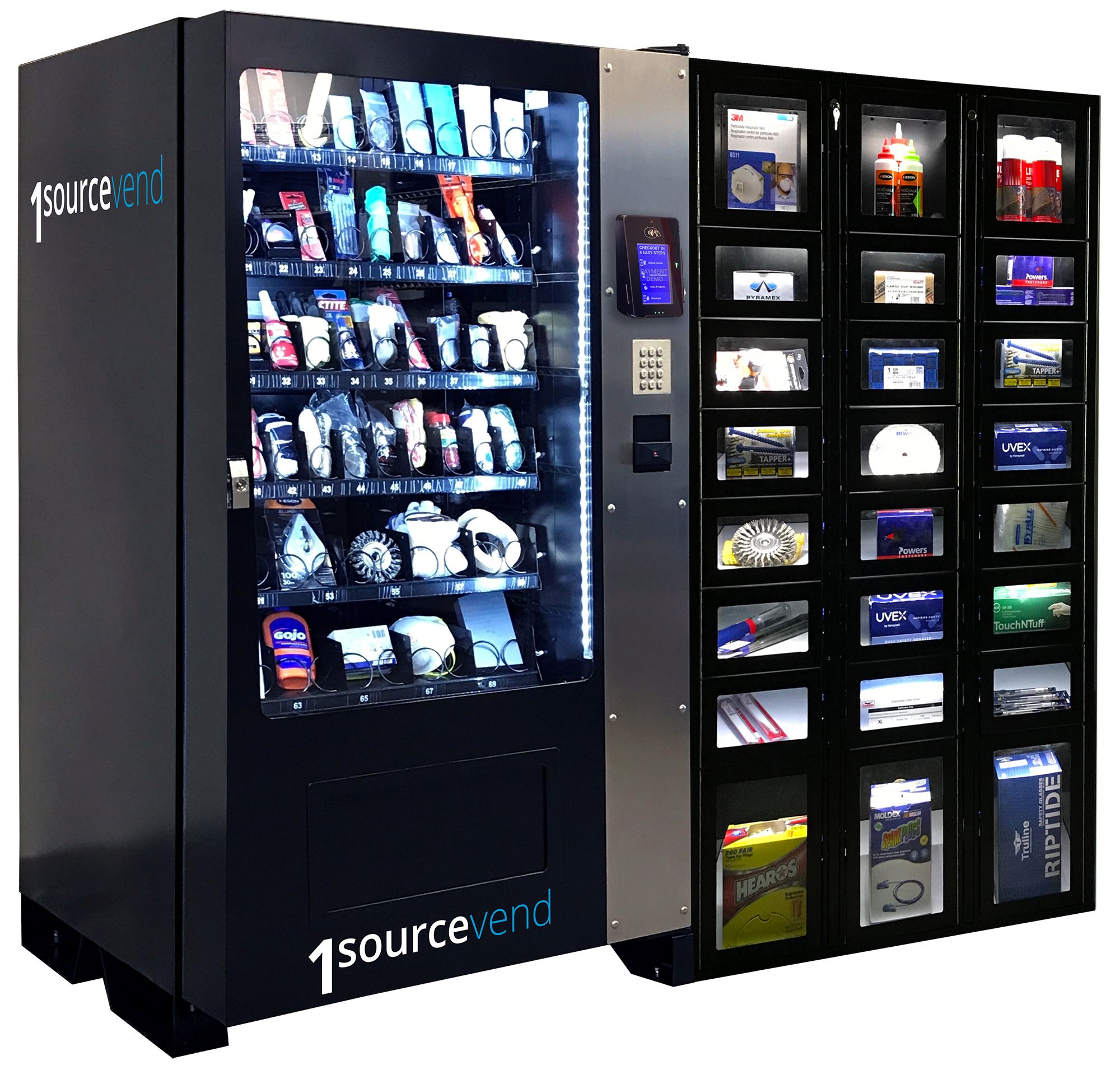High supply costs and increased demand across all industries have further accentuated the need to reduce production downtimes. In order to do this, more and more companies are turning to industrial vending. Inventory control solutions like vending lower both waste and operational downtime by improving the management of mission-critical items at the point of use.
Manufacturers seeking cost savings have rapidly increased their adoption of industrial vending programs. As a result, the industrial vending market is expected to grow to $4.6 billion by 2027, according to Grand View Research.
In addition to cost savings, a greater emphasis on employee safety has also led to increased use of vending machines on plant floors — with personal protective equipment being one of the fastest-growing product segments.
Placing vending machines at a customer’s location not only helps them effectively manage their inventory items, but it also allows distributors to offer a powerful value-add that will serve to de-commoditize themselves when competing for business.
Distributors considering a vending program may struggle to decide which provider is right for them. We recommend asking these nine questions:
 1. Is your vending provider independent or owned by a manufacturer or competing distributor?
1. Is your vending provider independent or owned by a manufacturer or competing distributor?
Inventory management is never one-size-fits-all. Distributors need a partner that is willing to grow with them. Manufacturer-owned vending machines often fail to deliver flexibility outside of their products and solutions. Independent vending providers allow distributors to adapt to their customers’ changing needs while insulating them from the competition.
2. How much control do you have over the machines?
Customers need change over time. They may want to retire dated equipment, change a tool line, or simply explore products that offer better cost savings. However, some vending providers restrict the type and brand of products that can be vended through their machines. Choosing an independent provider helps distributors remain flexible and provide a higher level of service to their customers.
3. Are the machines and software easy to use?
Customers aren’t looking to have their operations interrupted for extended periods. Some vending machines and the related software are so complicated that it can take several days of training just to become proficient. The more complicated installation and training are, the less likely it is that your customers will use it. Look for vending machines and software that are user-friendly, intuitive, and adaptive to your operational needs.
4. How difficult is the implementation process for the new vending program?
Before committing to a vending program, we recommend asking the vendor to provide a detailed implementation plan that includes:
- Implementation timeline
- Information about machine and software set-up
- Ease of internet connectivity
- Training and stocking requirements
- Reporting and analytics
- Maintenance requirements
- Service and troubleshooting
5. What is the end-user experience like?
Customers are looking for simplicity and effectiveness when considering vending solutions for their facility. Be sure to ask prospective vendors for detailed information about the user interface, reporting features and different machine options.
6. Are you limited in where you can place vending machines?
Some vending machines are limited as to where they can be installed, requiring machines to be directly connected to the company’s network infrastructure. This isn’t always feasible. Be sure to inquire about potential limitations relating to the availability of cellular, Wi-Fi or ethernet connectivity and the ease of setup.
7. How much training will sales representatives and end users need to operate vending machines?
Implementing a vending program doesn’t have to be time-consuming or complicated. Ask your provider how much training customers and sales reps will need to operate the machines and software. Relatedly, inquire about the breadth of training materials that are readily accessible and the level of support available to new users.
8. Are there unexpected fees associated with a new vending program?
Vending and inventory control software can help distributors maximize customer spend, reduce labor costs associated with in-person inventory counts and offer insulation against the competition. To get the most return on your investment, be sure to ask what is included in the cost of vending. Are there software leasing fees, feature add-ons, training costs, functionality upgrades, machine rental fees or other hidden charges? Look for providers that are upfront about what is included out of the box and what will require an additional purchase.
9. What kind of data and reports can you expect to receive from your vending software?
Look for cloud-based software platforms that allow data from multiple machines to be aggregated and reported in real-time. This data can help you and your customers improve inventory control by:
- Regulating usage with employee-specific reports and restriction capabilities.
- Preempting stock outages with low-inventory alerts.
- Identifying usage trends and forecasting customer needs.

When choosing a vending provider, don’t be afraid to ask questions. Distributors looking to invest in vending enjoy the greatest outcomes when they find a provider that is interested in building a strong, long-term relationship through transparency, not just securing an upfront sale.
Mark Hill has 40 years of experience in industrial distribution and vending. He is the founder of vending solutions and inventory management software company 1sourcevend. Learn more at 1sourcevend.com or contact him at mhill@1sourcevend.com.
Related Posts
-
The DPA Buying Group held its annual Buying & Networking Conference in Fort Lauderdale, Florida,…
-
MDM’s Tom Gale and Indian River Consulting’s Mike Marks discuss what’s in store for distributors…
-
The acqusitions help position Graybar as a leading automation and control distributor alongside its core…



